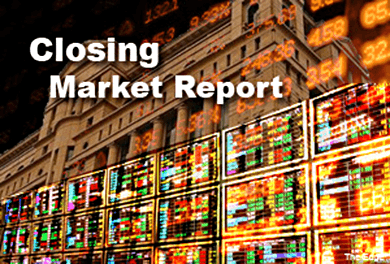
KUALA LUMPUR (Apr 15): The FBM KLCI settled flat as oil and gas (O&G) share gains supported the index amid less-optimistic China economic data.
At 5pm, the KLCI gained 0.52 point or 0.03% to close at 1,840.13 as stocks like SapuraKencana Petroleum Bhd advanced on higher crude oil prices. Bloomberg data showed that Brent crude oil rose to US$59.18 a barrel, while US oil climbed to US$54.01.
The KLCI had pared gains from an intraday high of 1,846.06 on news China's gross domestic product grew at a slower rate of 7% in the first quarter of this year from a year earlier.
In Malaysia, Areca Capital Sdn Bhd chief executive officer Danny Wong said the focus was on small-to-medium capitalised stocks today. Wong also noted that interest had returned to O&G stocks.
“O&G stocks are starting to come back, supported by a rise in oil prices today, following news that US oil production was lower in February.
“A recovery in oil prices would be positive for Malaysia, the KLCI, and the ringgit,” said Wong.
Bursa Malaysia saw 2.7 billion shares worth RM2.51 billion exchanged today. There were 518 gainers against 307 decliners while 353 counters were unchanged.
Leading the gainers list was Aeon Credit Service (M) Bhd while Syarikat Takaful Malaysia Bhd headed decliners. Top-active stocks included Xinghe Holdings Bhd and Perisai Petroleum Teknologi Bhd.
The ringgit was traded at 3.7067 against the US dollar, and 2.7213 versus the Singapore dollar.
Markets were mixed in the region. Japan’s Nikkei 225 was down 0.2% while Hong Kong’s Hang Seng rose 0.21%.
The Shanghai Composite dropped 1.2%. Reuters reported that the Chinese stock market posted its biggest one-day drop in more than a month on Wednesday, with a tumble in small-cap shares offsetting gains in infrastructure and banking stocks.
A slew of weak economic data this week has also soured investor sentiment. On Wednesday, China reported economic growth slowed to a six-year low.
The economy grew 7% in the January–March quarter from a year earlier — the worst showing since the depths of the global financial crisis, data showed, highlighting the need for further monetary easing.